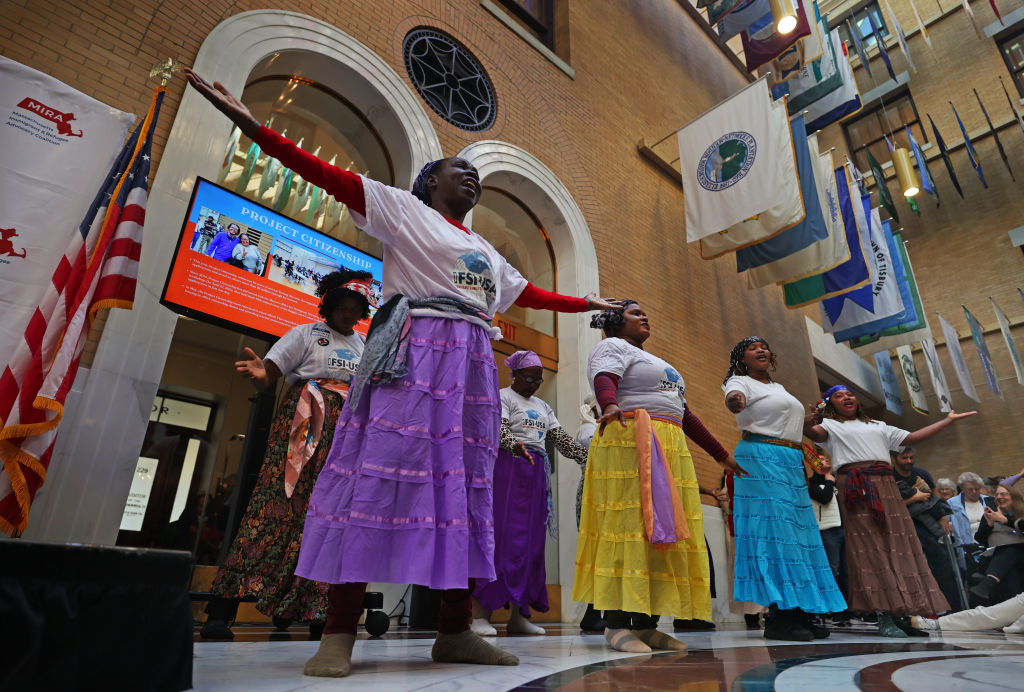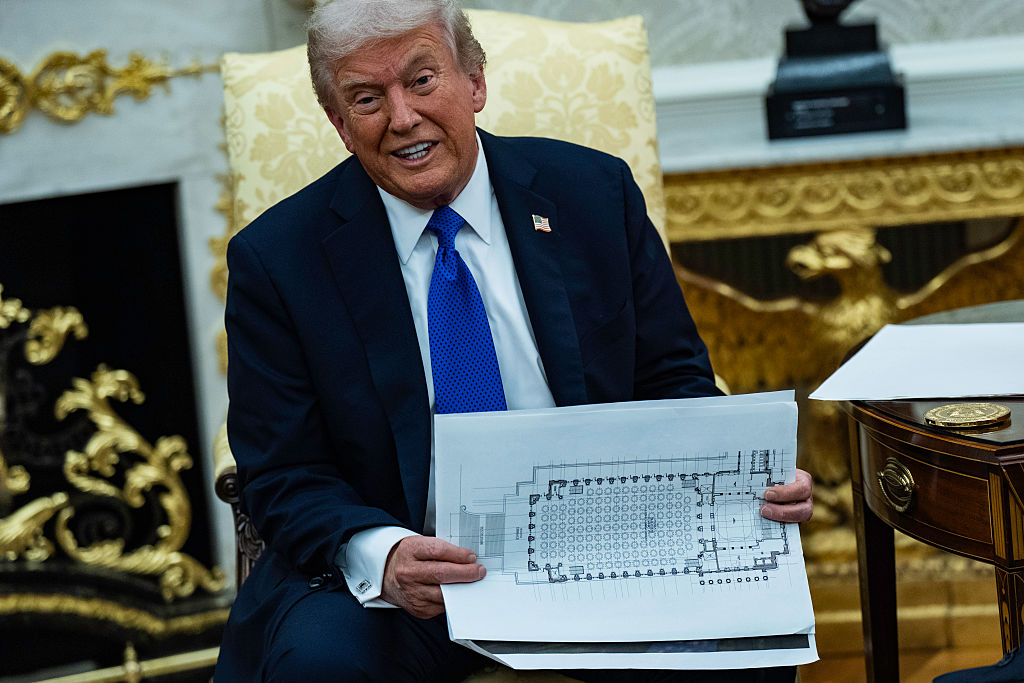Trump Admin Ending Immigration Protections For Haitians
Trump Administration Cancels Temporary Immigration Protections For Haitians

The Trump administration has taken another sweeping step in its long-running effort to redefine the nation’s immigration system along racial and ideological lines, announcing the end of Temporary Protected Status (TPS) for approximately 350,000 Haitian nationals.
According to the decision made by Department of Homeland Security Secretary Kristi Noem, the temporary protection will end on February 3, 2026, removing the legal residency and work authorization from one of the largest Black immigrant groups in the United States, and forcing hundreds of thousands into an impossible choice of self-deporting or facing imprisonment.
While Noem acknowledged the humanitarian and political problems Haiti is currently facing, including what she describes as “widespread gang violence“, she added that extending the TPS policy would be at odds with U.S. interests. DHS justified the cancellation stating that Haiti no longer faces the “extraordinary and temporary conditions” required for TPS designation.
“Based on the Department’s review, the Secretary has determined that while the current situation in Haiti is concerning,” the official DHS termination notice said, “the United States must prioritize its national interests and permitting Haitian nationals to remain temporarily in the United States is contrary to the U.S. national interest.”
The Trump administration claimed in the notice that the program has become a “magnet for illegal immigration” arguing that continuing protection is “contrary to the U.S. national interest”, but this narrative stands in direct contradiction to actual reported conditions on the ground. International observers describe Haiti as engulfed in collapse due to widespread gang rule, mass displacement, skyrocketing hunger, and a political vacuum that has pushed more than 1.4 million people from their homes. UNICEF reportedly estimates that over 6 million Haitians, including 3.3 million children are currently in need of humanitarian assistance.
As noted by The Miami Herald, even in communities, with no visible gang presence, the situation is critical. The northern port city of Cap-Haïtien is facing overpopulation due to ongoing U.S. Federal Aviation Administration ban on U.S. carriers. The southern regions are also struggling to recover from Hurricane Melissa.
“Many households rely on unsafe water sources and lack access to basic sanitation, increasing the risk of disease outbreaks,” the U.N. said. “Health facilities are under-equipped, financially inaccessible for many, and unable to provide mental health support. As a result, preventable illnesses and malnutrition are on the rise, particularly among children and pregnant women. Vulnerable groups including women, girls, and youth face heightened protection risks, including exploitation and violence.”
Despite acknowledging that Haiti remains riddled with violence, instability, and an institutional breakdown, the administration insists that these realities no longer justify protection for Haitians already living legally in the U.S. DHS has urged TPS holders to “arrange departure” before February or risk forcible removal—an ultimatum advocates say is both cruel and logistically impossible.
“Our immigration policy must align with our foreign policy vision of a secure, sovereign, and self-reliant Haiti and not a country that Haitian citizens continue to leave in large numbers to seek opportunities in the United States,” the notice stated.
But the controversy extends far beyond humanitarian concerns. Immigrant-rights groups, racial justice advocates, and legal scholars argue that the administration’s decision is part of an unmistakable and deeply troubling pattern of targeting Black and Brown immigrant communities for expulsion while extending preferential pathways to white immigrants.
The most egregious example is the Trump administration’s posture toward white South Africans while forcibly removing LatinX immigrants. Even as it aggressively moves to end protections for Haitians, the administration has championed special resettlement initiatives for white South African farmers; despite the absence of any credible threat requiring relocation.
This racial double standard exposes the true motive behind the administration’s policy shift. By revoking TPS for Haitians, as well as for nationals from countries such as Cameroon, Honduras, Nepal, Sudan, Nicaragua, and Venezuela, the administration is seemingly using demographic engineering under the guise of immigration reform to reduce the population of Black and Brown immigrants while quietly creating or expanding pathways for white ones.
The decision also reignited the administration’s inflammatory political rhetoric and attacks against Haitian immigrant communities. In 2024, during the campaign, Trump and high-profile surrogates, including JD Vance, circulated false claims about Haitian migrants in Springfield, Ohio, spreading the baseless allegation that Haitians were “eating pets.” The racist narrative triggered multiple bomb threats and heightened hostility toward Haitian communities nationwide. Now, that rhetoric has materialized into federal policy.
Legal battles are already underway. In July, a federal judge blocked the administration’s attempt to prematurely end Haitian TPS, ruling that did not follow instructions and a timeline mandated by Congress to reconsider the TPS designation for Haitians.
“Secretary Noem does not have statutory or inherent authority to partially vacate a country’s TPS designation,” making her actions “unlawful,” Cogan wrote. “Plaintiffs are likely to (and, indeed, do) succeed on the merits.”.
With a new February deadline set, immigrant-rights advocates are expected to challenge the termination again, setting the stage for a high-stakes courtroom fight that may determine the future of hundreds of thousands of families.
For Haitian TPS holders who have lived, worked, raised families, and paid taxes in the United States for years—many for decades—the message is unmistakable, under this administration, who gets to stay in America is increasingly becoming a question of race.
SEE ALSO:








